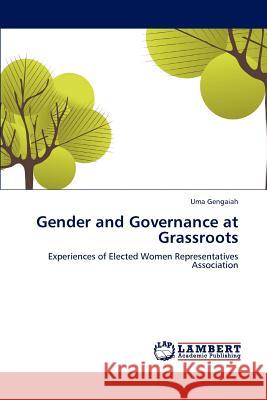Gender and Governance at Grassroots » książka
Gender and Governance at Grassroots
ISBN-13: 9783846513705 / Angielski / Miękka / 2012 / 512 str.
The 73rd Constitutional Amendment Act of India has brought women to the local level institutions as decision makers. But the experience of capacity building programmes conducted by various training agencies for Gram Panchayat Women leaders has shown that they demand institutional mechanism for the continuous flow of information and support structure to stabilize their development activities. The felt needs of the women leaders to fulfill their responsibilities are not adequately fulfilled by these training agencies. This has created a demand for a full-fledged support structures for women local body leaders. In the absence of any external support, the elected women leaders thought that they can create an outfit on their own. Against this background, the Elected Women Representatives (EWRs) formed their network and organized meetings. But, whether collectivizing/federating women elected to local self-government can provide a valuable platform for raising their voice for shifting gender relations and bringing more women into leadership with the capacity to influence development design is a major question. The study assumed that the more the initiatives to build capacity and netw











